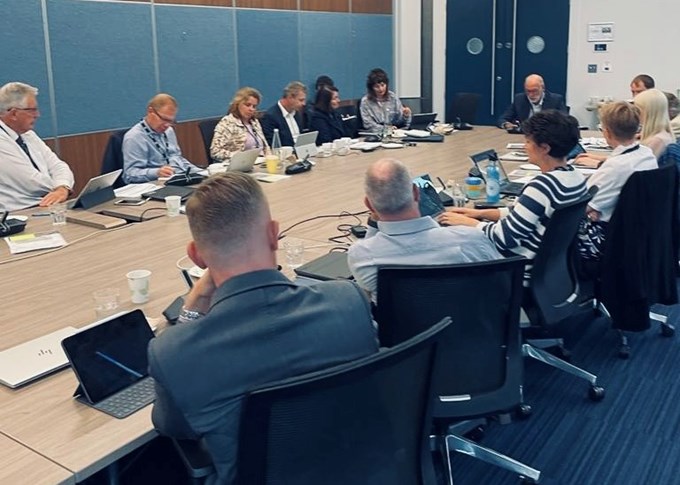Tēnā koutou katoa.
Firstly, thank you to all the work staff at Auckland Transport (AT) have undertaken to help the region recover from the devastating Auckland anniversary weekend floods, as well as Cyclone Gabrielle. We clearly have a huge task clearing slips, rebuilding roads and bridges to reconnect communities across Auckland.
In December, I sent the AT Board Chair my Letter of Expectation for Auckland Transport. This lays out my priorities for Auckland Transport for the coming year.
Firstly, I must remind you of the budget situation we are facing. Auckland Council faces a budget shortfall of $295 million. I’ve asked AT to make savings of $25 million, without making further cuts to public transport services that Aucklanders rely on.
In addition, the Expenditure Control and Procurement Committee has been asked to identify a further $7.5m in savings from AT, and I trust you will work constructively with Chair Maurice Williamson to find these savings.
This is a tough ask I know and will require hard choices, but households across Auckland are facing tough choices as interest rates rises, and council and our CCO’s must do the same.
Some of these savings will come from implementation of shared services across the council group, which AT needs to accelerate progress on.
My Letter of Expectation lays out my 7 key priorities for Auckland Transport.
First, and most fundamentally, I am seeking a fundamental change of approach from AT. The organisation currently suffers from a serious democratic deficit and needs to regain social licence for its activities. AT needs to deeply understand and respond to what matters most to Aucklanders in transport.
Aucklanders want faster and more reliable journeys around our, city and this is what AT must focus on. If we want to get people using public transport, then the best way to do this is offer faster bus services.
AT must significantly improve communication about the transport system, especially in relation to public transport. Too often passengers are left in the dark when delays happen or receive partial information.
Fixing Auckland’s transport system does not begin with large-scale investment in new infrastructure. Well ahead of that, we must do a much better job of managing the infrastructure assets we already have and the public transport services we operate. This is a question of necessity, given the economic and fiscal pressure we are under as Council.
AT must work to achieve significant gains in network performance through smaller-scale improvements to the arterial road network, sensibly using technology like dynamic lanes and transponders on buses, as well as bus lanes and re-configuration of congested intersections. These must be prioritised as part of a sped-up network optimisation programme, designed to improve travel-times for all transport modes.
We need to fix long-standing punctuality and reliability issues on the public transport network which will help recover and improve public transport patronage to at least pre-Covid levels.
AT should also improve oversight and management of contractors to ensure work is undertaken correctly, and if not that the contractor pays for the repairs rather than the ratepayer.
As I mentioned above, AT needs to reduce its cost to council. AT must at all times prioritise affordability and value for money. This should include looking at phased delivery of projects and lower cost delivery of the cycling programme.
AT should also increase its non-rates income. This should include looking at parking pricing, particularly where AT undercuts market rates for parking.
AT needs to deliver a better approach to traffic management to reduce road user frustration, as well as deliver savings to council and the private sector. Temporary Traffic Management has been estimated to cost the council group an astonishing $145 million per year.
AT must adopt an approach to TTM that is more targeted to risk. AT must also incentivise contractors to reduce the amount of road space that is taken up by temporary traffic management through a system of financial charges and penalties.
I would also like AT to reduce cost they impose on the private sector through delays to resource consent processing and access to the corridor when required.
AT must take direction and oversight from council.
I expect AT to work closely with myself, as well as with John Watson the Chair of the Transport and Infrastructure Committee to set direction for transport in Auckland.
I also set up this new committee to hold AT accountable, so AT must work transparently with this committee to achieve that.
AT’s plans and strategies need to be more clearly shaped by affected communities. I have proposed a process whereby local projects should go to the local board for approval at the planning phase. If support is not forthcoming then projects can still be approved by the AT board, but the reasons for doing so must be reported to the Transport and Infrastructure Committee.
AT needs to support the development of the Auckland Integrated Transport Plan I am working on with Minister Michael Wood. We need AT’s resources to match the resources that central government have, as well as a hard look at major projects on our current programme to see if there are better ways of fixing local issues.
I look forward to working closely with the AT Board and management to achieve my goal to transform how AT operates and get to working on fixing our transport system.
Kia kaha.


